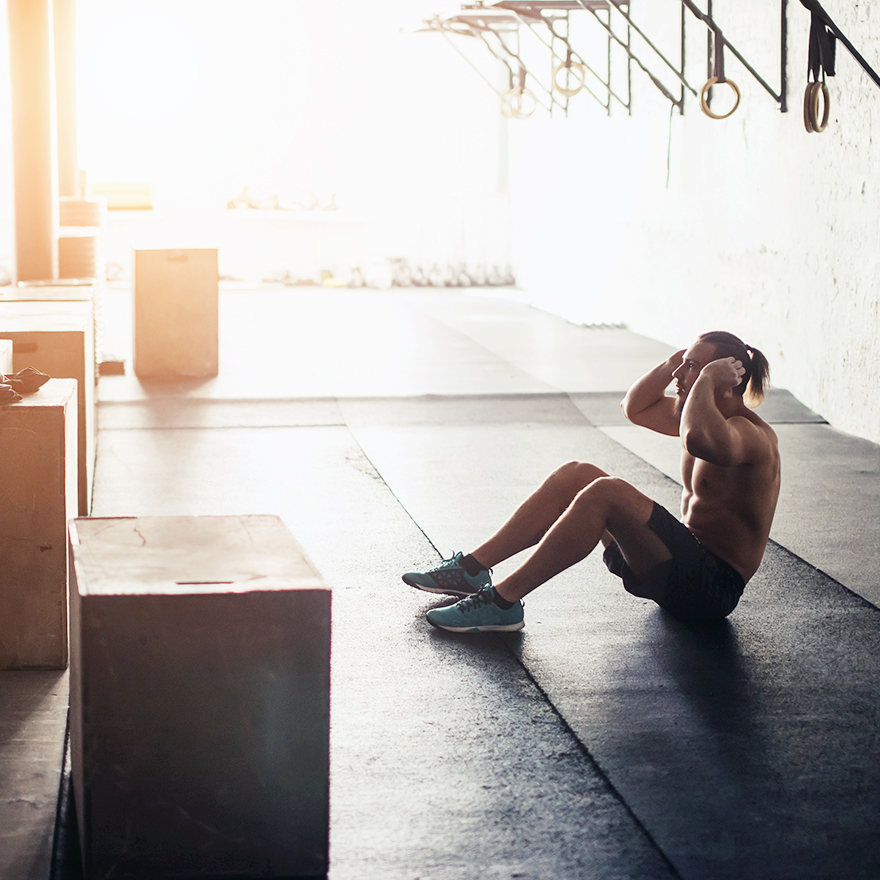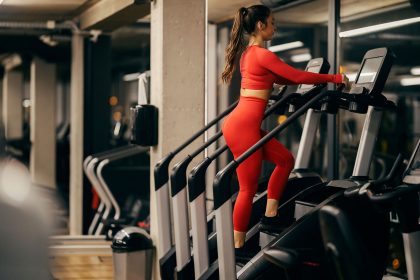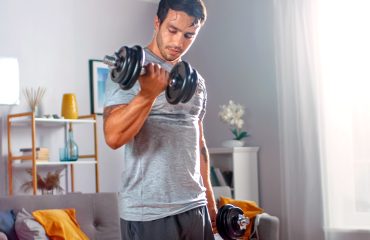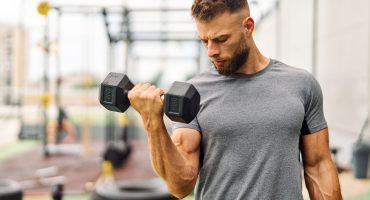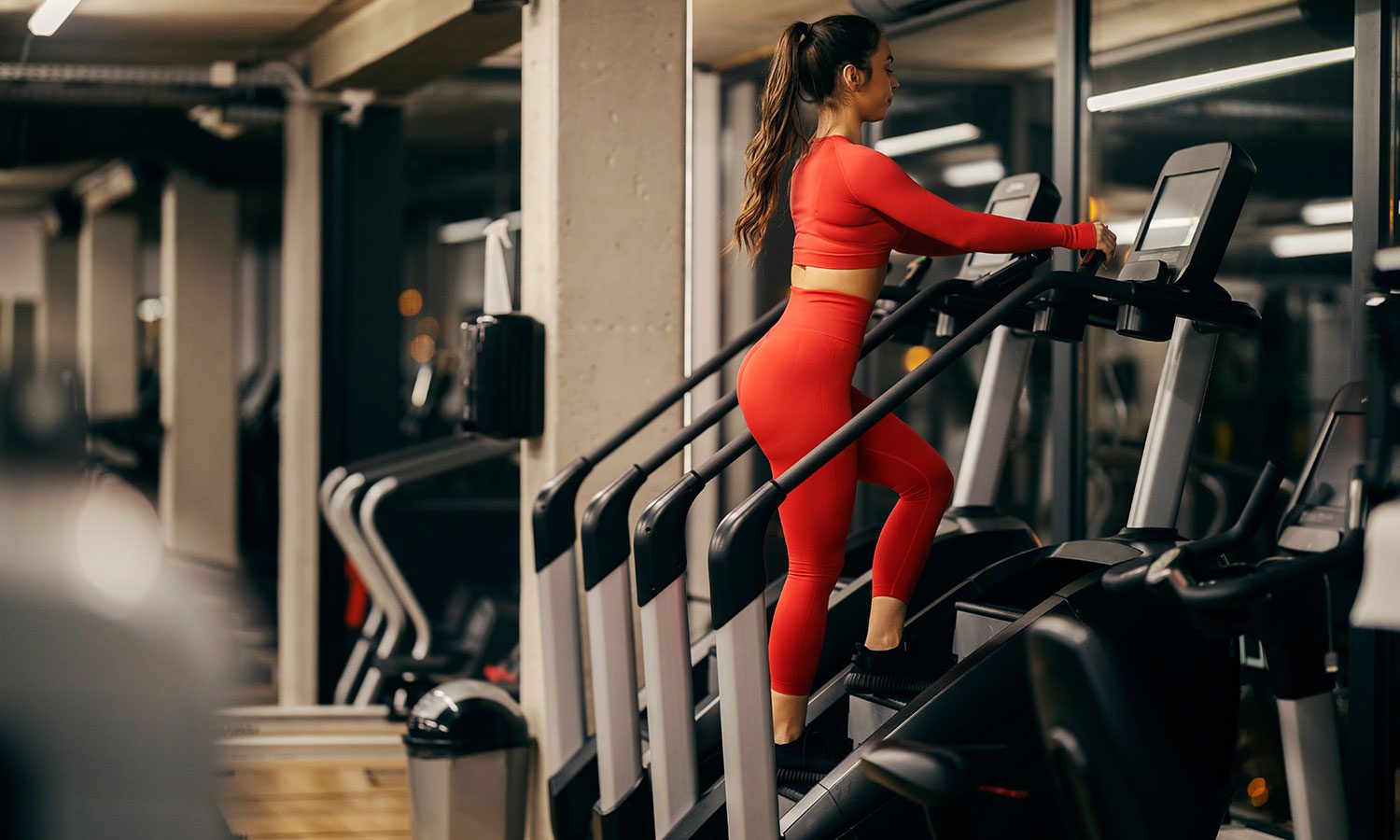
Why The StairMaster is Elite For Your Workouts
Let’s be honest, for most of us, it’s f*ck cardio. Why would you work on your legs & cardiovascular health when you can get a killer chest pump? Trust me when we say, we agree with you. But, there is one piece of cardio equipment that reigns supreme to all else, and that is the StairMaster. This piece of equipment, which mimics the act of climbing stairs, is more than just a way to break a sweat; it offers a host of benefits, along with a few challenges.
If you're considering making the StairMaster a regular part of your workout routine, here's a closer look at what it can do for you, potential downsides, and how to get the best workout possible.
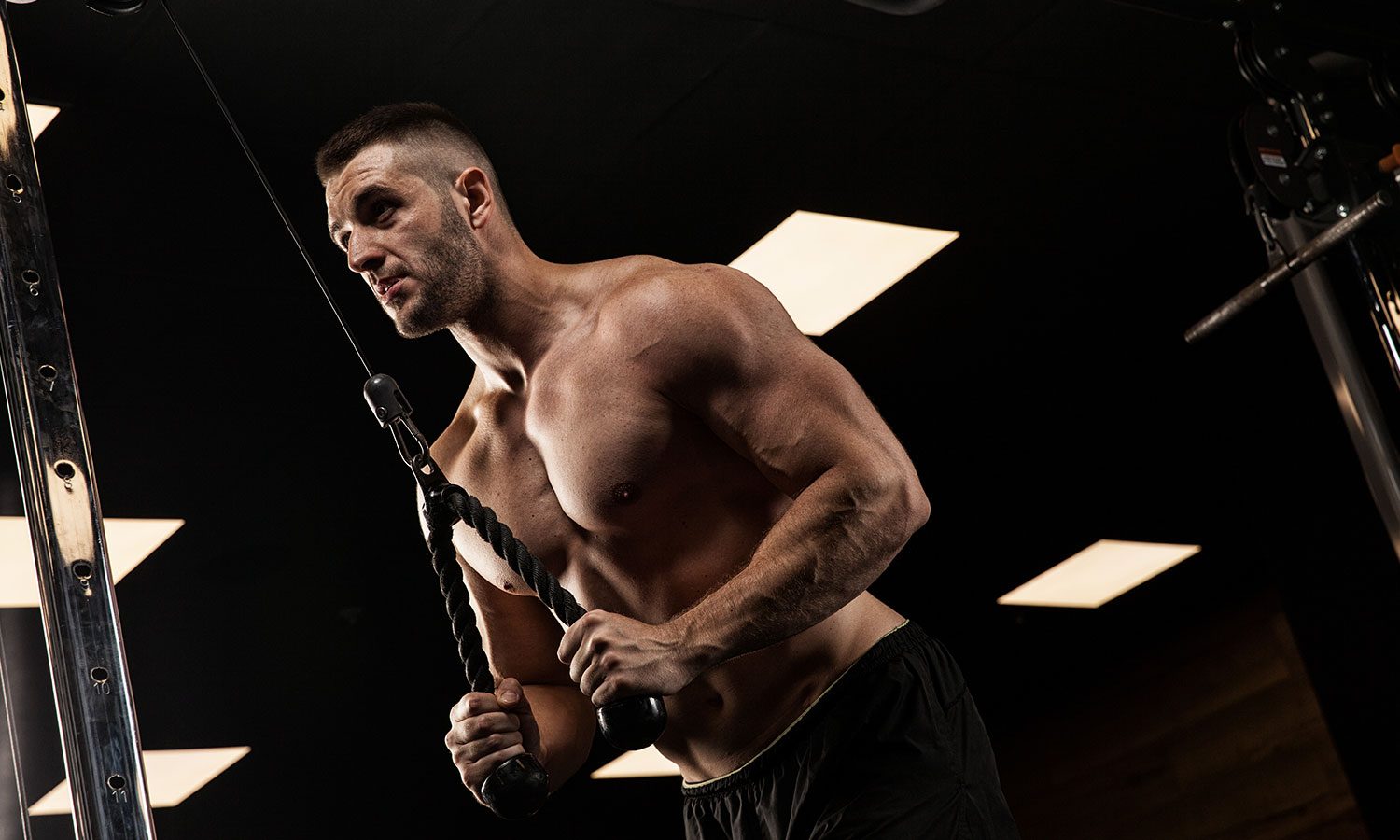
What Is the StairMaster?
The StairMaster is a cardio machine designed to simulate stair climbing, using a set of continuously rotating steps. Unlike standard stairs that you can finish, the StairMaster keeps going as long as you’re stepping, creating an endless climb that can seriously elevate your heart rate. It’s especially popular among gym-goers for its ability to provide a full-body workout, combining cardiovascular fitness with toning and strengthening of the legs and core.
The Benefits of Using the StairMaster
Improves Cardiovascular Fitness
The StairMaster provides an intense cardio workout. Whether you’re doing a short, high-intensity session or a longer, steady climb, your heart and lungs are working hard to keep up. Over time, using the StairMaster can improve your aerobic capacity, making daily activities easier and reducing the risk of cardiovascular disease.
Strengthens and Tones Your Lower Body
One of the biggest advantages of the StairMaster is the effect it has on your legs and glutes. The climbing motion targets key lower body muscles like the quadriceps, hamstrings, calves, and glutes. Regular use of the StairMaster will not only build strength but also help tone these muscles, giving you a leaner, more defined look.
Low-Impact, Joint-Friendly Exercise
Unlike running, which can be tough on your knees and ankles, the StairMaster is a low-impact exercise. This makes it a great option for people with joint issues or those recovering from injuries who still want an intense workout without the risk of aggravating existing conditions.
Burns Calories and Aids Weight Loss
The StairMaster is an excellent calorie-burning machine. Depending on your weight and intensity level, you can burn anywhere from 200 to 500 calories in a 30-minute session. This makes it an effective tool for those looking to shed fat, especially when combined with a proper diet and strength training.
Engages Core Muscles
Climbing stairs on the StairMaster doesn’t just work your legs. To maintain balance and good posture, your core muscles are constantly engaged. Over time, this can help improve your core strength and stability, giving you better posture and overall functional fitness.
The Downsides of Using the StairMaster
Monotony
One potential downside of the StairMaster is that it can get boring. Since the movement is repetitive and you’re essentially climbing in place, some users might find it hard to stay mentally engaged for long sessions. To counteract this, try mixing up your routine with varying speeds or using interval training to keep things interesting.
Tough for Beginners
The StairMaster can be tough for people who are new to exercise. Climbing stairs continuously is no easy feat, and beginners might struggle to keep up for extended periods. It’s important to start slow and gradually increase the intensity as your fitness improves.
Targets Lower Body Primarily
While the StairMaster engages your core and lower body effectively, it doesn’t provide much upper-body engagement. If you're looking for a full-body workout that includes your arms and shoulders, you may need to pair the StairMaster with other exercises to ensure balance.
Can Be Hard on the Knees (If Used Improperly)
Although the StairMaster is generally low-impact, it can put stress on your knees if you use poor form, such as leaning too heavily on the handlebars. Proper posture is essential to avoid unnecessary strain.
How to Get the Best Workout on the StairMaster
Focus on Posture
Good posture is key when using the StairMaster. Stand tall, engage your core, and avoid leaning on the handrails. Using your hands for support can take the load off your legs, reducing the effectiveness of the workout. Instead, use a light grip if needed, and let your lower body do most of the work.
Incorporate Intervals
To keep your workouts challenging and engaging, incorporate intervals. Alternate between periods of high intensity (climbing at a faster speed) and lower intensity (slower, steady pace). This type of workout not only keeps things interesting but also helps burn more calories in a shorter amount of time.
Vary the Speed and Resistance
The StairMaster allows you to adjust the speed and resistance of the steps. To get the best workout, try mixing up the settings. Increase the speed for a high-intensity cardio burn, or add resistance to mimic climbing steeper stairs, which will challenge your leg muscles even more.
Use a Time or Step Goal
Setting a goal for your StairMaster workout can help you stay motivated. Whether it’s a time goal (e.g., climb for 20 minutes) or a step goal (e.g., 1,000 steps), having something to aim for can push you to complete your workout. You can also try visualizing yourself climbing famous landmarks like the Eiffel Tower or the Empire State Building for extra motivation.
Try Side Steps or Backward Steps
For an advanced challenge, try adding in side steps or backward stepping. These movements engage different muscles, helping you build a more balanced lower body. However, make sure you’re comfortable with the basic movement before attempting these variations to avoid injury.
Stretch After Your Workout
Stair climbing puts a lot of strain on your lower body muscles. To prevent tightness or injury, make sure to stretch your quads, hamstrings, glutes, and calves after your workout. Stretching not only improves flexibility but also aids recovery, ensuring you’re ready for your next session.
Our Final Thoughts
Testosterone is the base of almost every steroid cycle, and for good reason. It’s the primary male hormone responsible for muscle growth, strength, and overall performance. When you’re bulking in the winter, testosterone will help you maintain a high level of anabolic activity in your body, promoting muscle gains and strength improvements.
Whether you use testosterone enanthate or cypionate (both are long-acting esters), this steroid provides a steady release of the hormone over time, which is ideal for bulking cycles. It also increases red blood cell production, improving your endurance and helping you recover faster after intense lifting sessions.
Typical cycle:
Most testosterone bulking cycles last 10-12 weeks. Dosages can range from 300mg to 500mg per week, depending on your experience level. It’s often stacked with other anabolic steroids like Dianabol or Deca-Durabolin for even better results.
What to watch out for:
Testosterone can convert into estrogen, which can lead to water retention, gynecomastia (man boobs), and mood swings. Make sure to have an aromatase inhibitor (like Arimidex) on hand to control estrogen levels during your cycle.
Buy Anabolic Steroids Online at Pur Pharma
Pur Pharma is Canada’s leader in providing only the highest quality pharma-grade steroids for enthusiasts such as yourself. With a huge catalog to pick from & unmatched customer support, this is your one stop shop for all things anabolic steroids. If you have any questions, feel free to reach out to our customer support team.
LATEST ARTICLES
